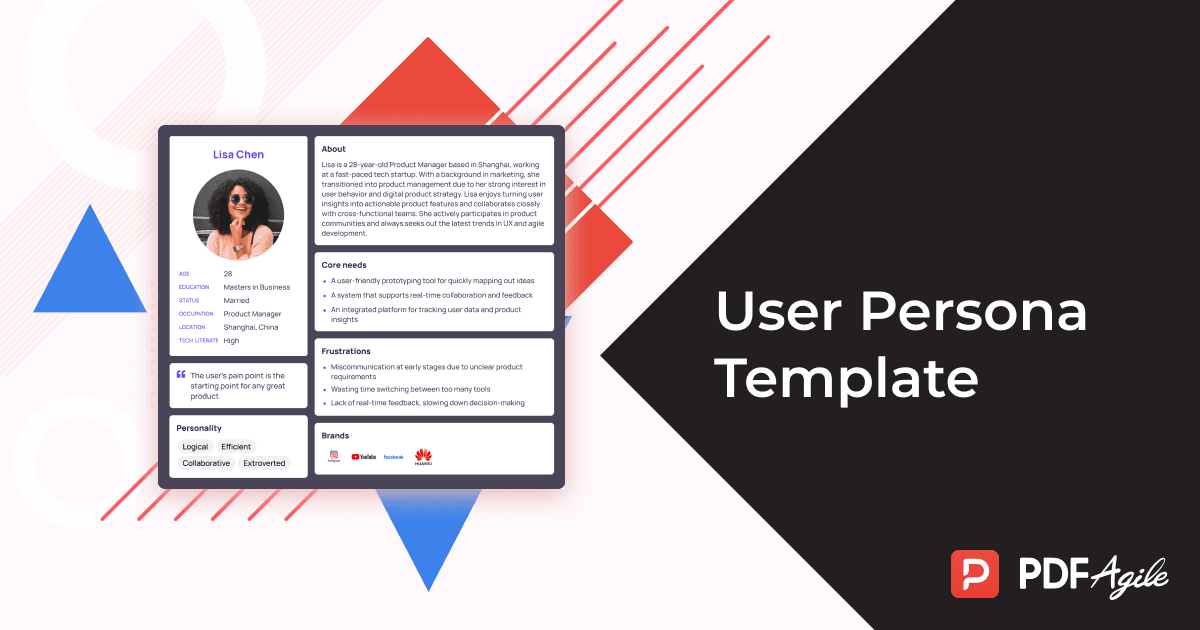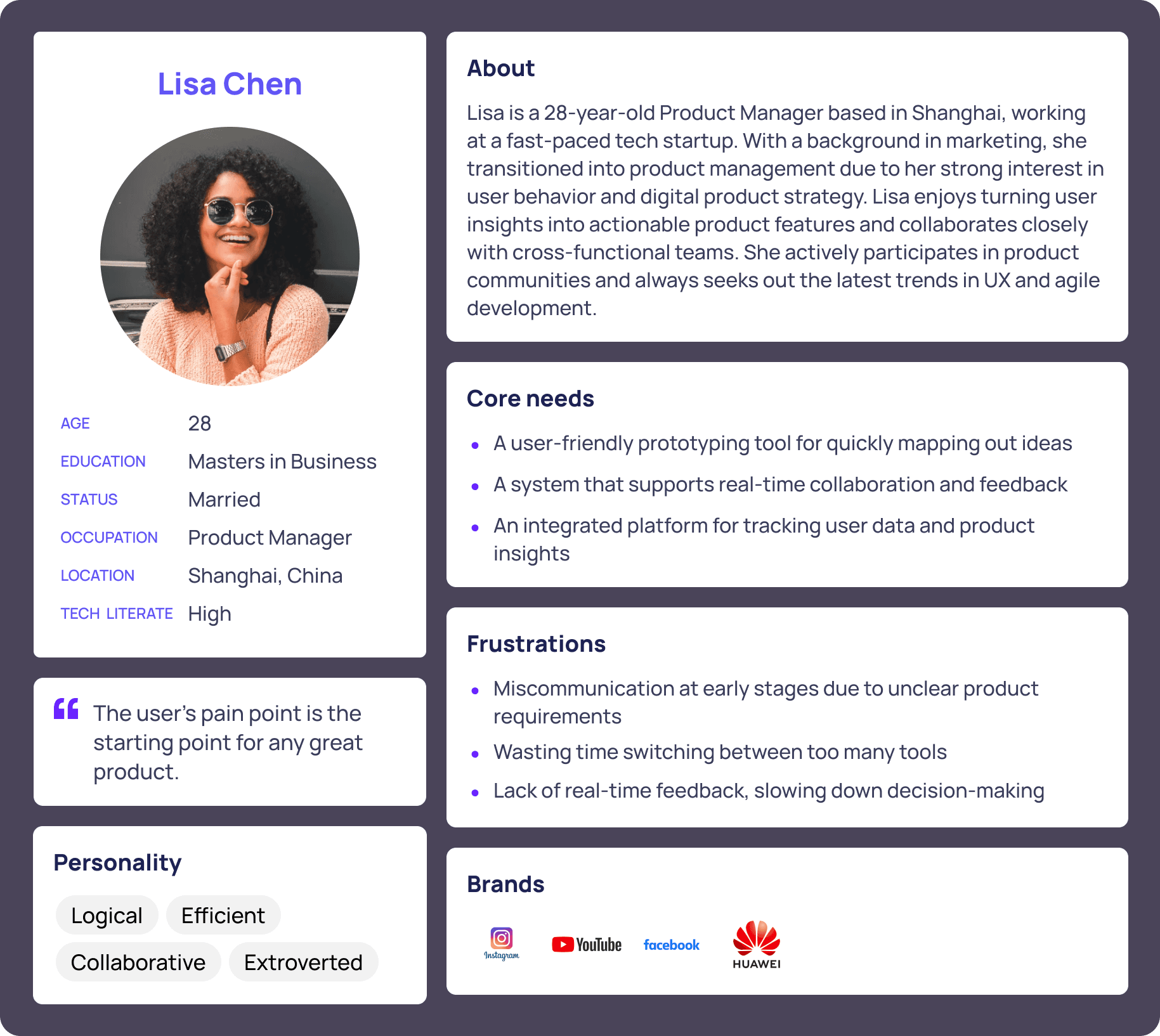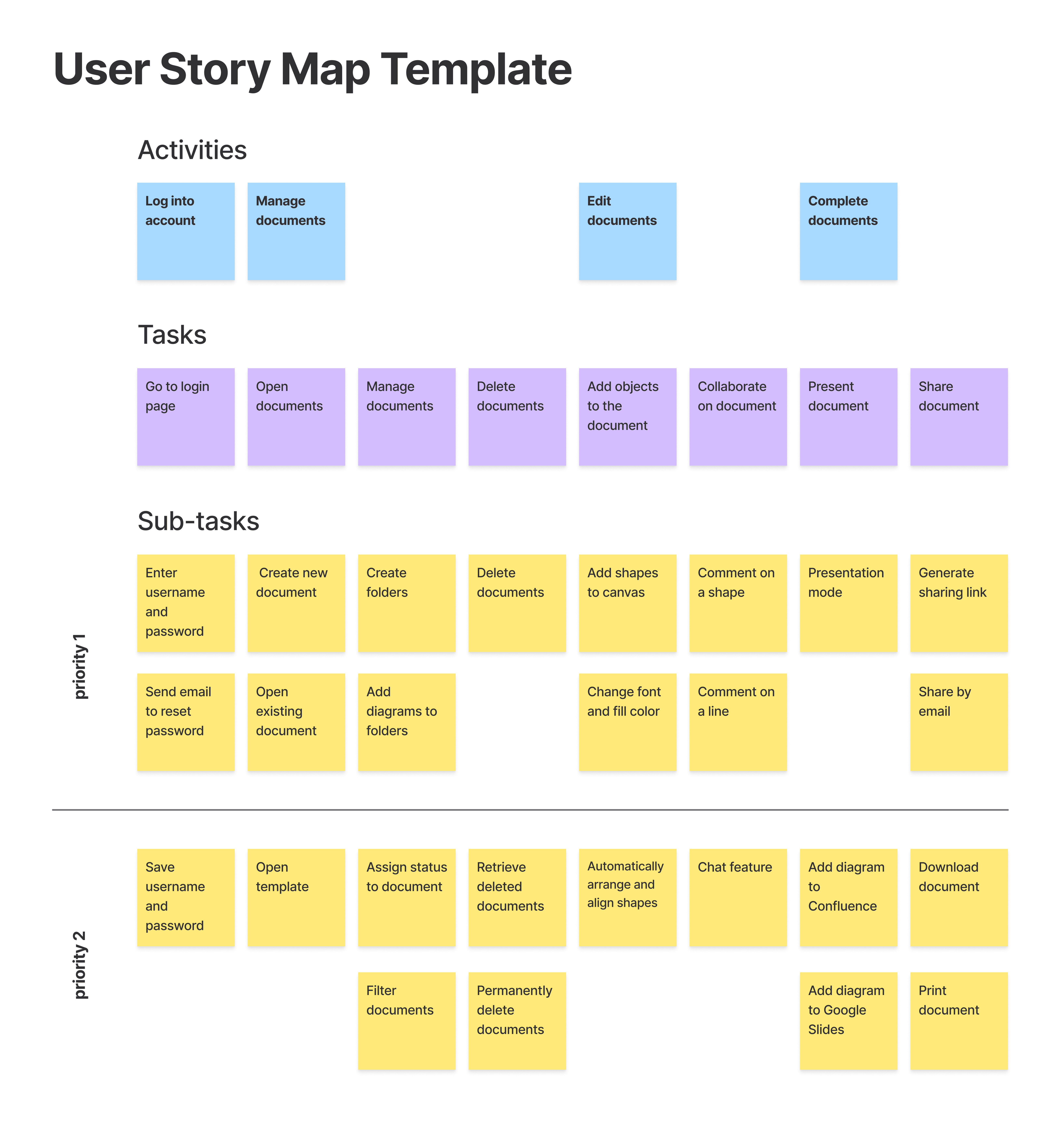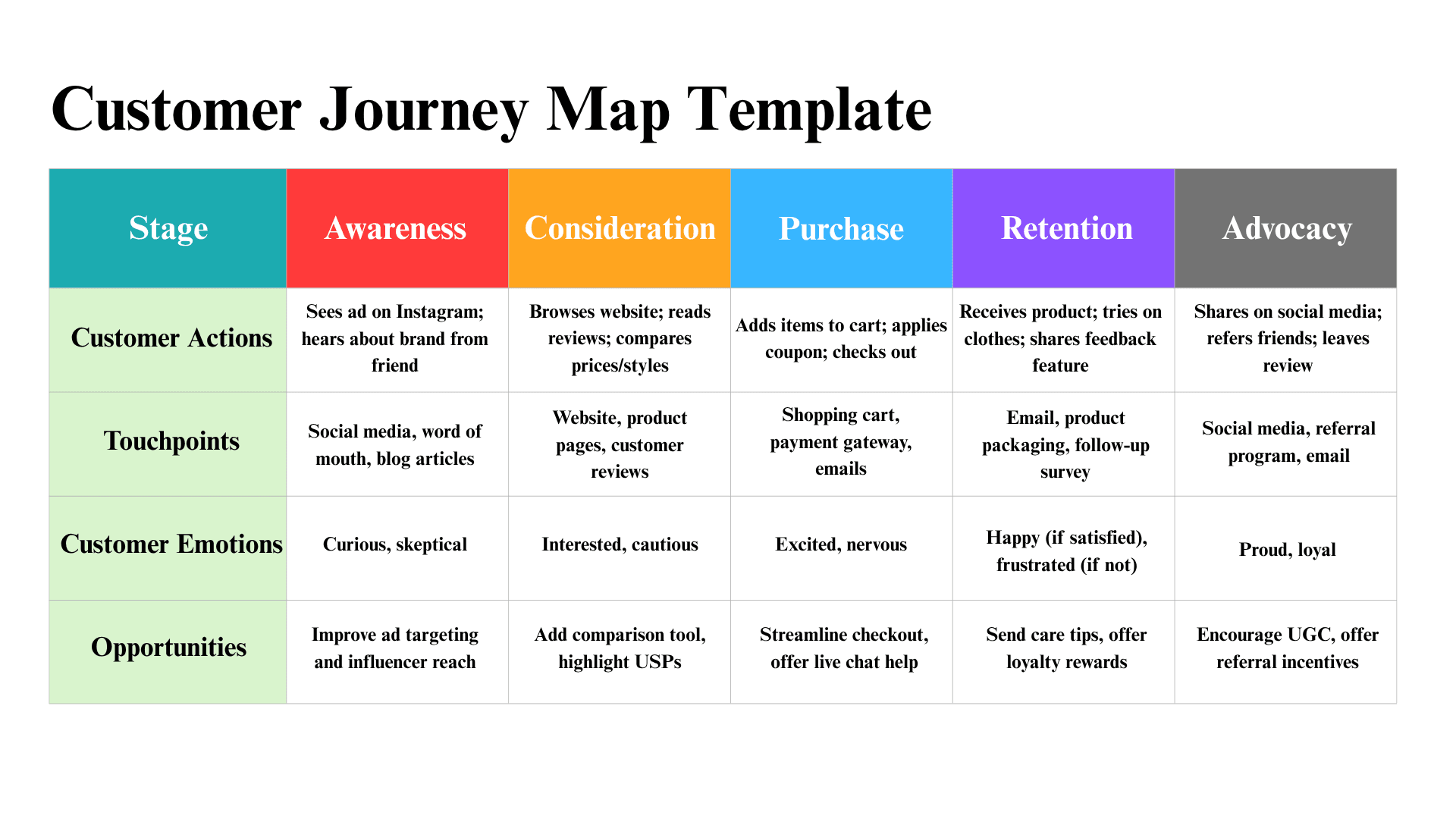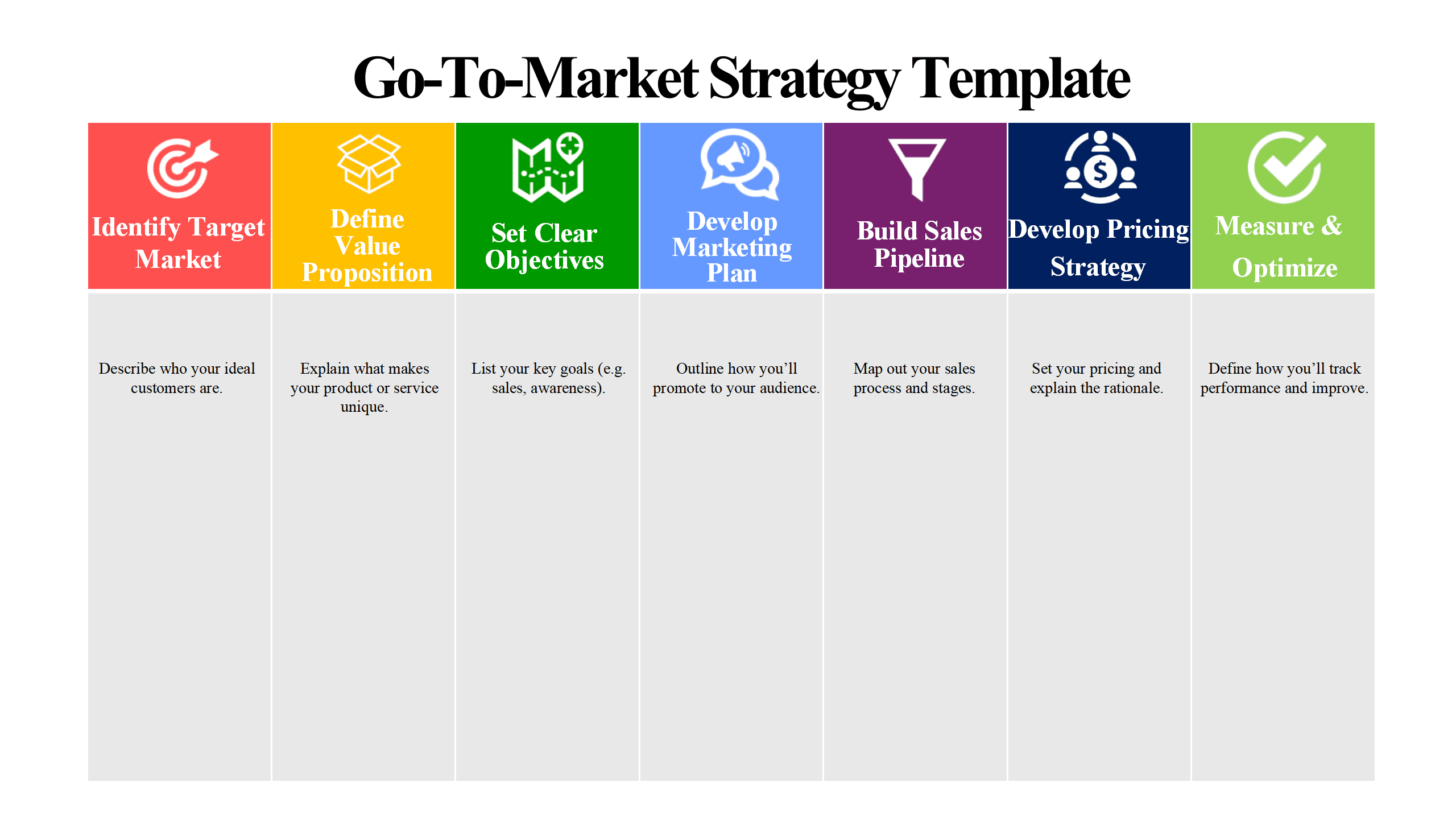Imagine having a direct line to the minds of your ideal customers – understanding their needs, desires, and frustrations as if you knew them personally. While mind-reading isn't yet a reality, user personas offer the next best thing. Think of them as meticulously crafted blueprints of your target audience, providing a human-centric foundation for creating content, products, and marketing that truly hits the mark.
What Is a User Persona?
A user persona is a semi-fictional profile that represents a segment of your target audience. It is developed using a mix of real user data, behavioral insights, and demographic research to model the behaviors, goals, motivations, frustrations, and preferences of your ideal users. While each persona represents a specific user type, it is broad enough to capture a cluster of customers with shared attributes.
User personas give businesses a clear window into the daily lives of their users. They answer critical questions such as:
- Who is using your product?
- What are their key needs?
- What pain points do they encounter?
- How can your offering solve their problems?
When created properly, user personas help you align your product, design, marketing, and support around the real expectations of your users—not assumptions.
Why User Personas Matter
Understanding your customers is the foundation of any successful business strategy, and user personas serve as your blueprint for that understanding. Here’s why they’re indispensable across departments:
1. Design with Purpose
UX and UI designers use personas to avoid designing for “everyone,” which usually leads to designing for no one. A persona anchors the design process, keeping user needs front and center, ensuring that workflows, features, and layouts are intuitive and satisfying.
2. Craft Personalized Marketing
Marketing teams benefit immensely from personas by tailoring campaigns, ad copy, and content strategies. Knowing a persona’s preferred channels, tone of voice, and purchasing habits enables hyper-targeted outreach that actually resonates and converts.
3. Build User-Centric Products
Product managers and developers use personas to prioritize feature development. Instead of focusing on what’s trendy, they focus on what’s actually valuable to users—improving retention and reducing churn.
4. Empower Customer Support
Support teams equipped with user personas can proactively identify common frustrations and prepare knowledge bases, scripts, and training materials that address real issues.
5. Align Cross-Functional Teams
When all departments reference the same user personas, it creates a unified, consistent understanding of the customer across the business, eliminating silos and misalignment.
Key Elements of a User Persona Template
A well-crafted user persona may include the following components:
1. Persona Name and Title
Give the persona a realistic name and job title (e.g., “Marketing Manager Maria” or “Freelance Designer Dave”).
2. Demographics
Include:
- Age
- Gender
- Education
- Location
- Marital status
- Income level
These help contextualize the persona’s lifestyle and priorities.
3. Job Role and Background
Describe their job responsibilities, career path, and professional environment.
4. Goals and Motivations
What is this persona trying to achieve professionally or personally? What motivates them to make decisions?
5. Challenges and Pain Points
List specific problems or frustrations they encounter that your product or service can help resolve.
6. Buying Behavior
How do they research, compare, and buy products or services? What influences their decisions?
7. Preferred Channels
Where do they consume content? Think about:
- Social media platforms
- Blogs or forums
- Podcasts
- Events
8. Quotes or Real Testimonials
Use direct quotes from user interviews or surveys to bring authenticity.
User Persona vs. Buyer Persona
Although similar, user personas and buyer personas serve different strategic purposes. Here's a deeper comparison:
| Feature | User Persona | Buyer Persona |
|---|---|---|
| Focus | End users of your product | People who make the purchase decision |
| Usage | Guides UX/UI design, onboarding, feature prioritization | Influences sales messaging, pricing strategy, and lead nurturing |
| Examples | A junior developer using a coding platform | A CTO approving a team-wide software license |
| Overlap? | Sometimes—they may be the same person (especially in B2C) | Often separate in B2B contexts |
Best Practices for Creating User Personas
To ensure your personas are actionable and accurate, follow these best practices:
1. Use Real Data
Start with existing customer data: surveys, interviews, analytics, support tickets, CRM data. Avoid basing personas purely on assumptions or internal opinions.
2. Segment Based on Behavior
Don't segment solely by demographics. Instead, look at behavioral attributes like how they use your product, decision-making style, or communication preferences.
3. Keep It Specific But Not Too Narrow
Personas should be detailed enough to be useful, but broad enough to represent a group—not just one user.
4. Validate with Stakeholders
Share personas with teams across design, marketing, sales, and support to validate assumptions and ensure alignment.
5. Visualize the Persona
Add a stock image, icons, or mood board. Visuals help teams connect with the persona on a human level.
6. Update Regularly
Personas are living documents. Revisit them quarterly or biannually based on evolving customer behavior and market changes.
User Persona Example
To illustrate how the user persona template can be brought to life, let's walk through an example. Below is a sample persona, "Project Manager Lisa Chen," showcasing how you might populate the template with details gathered from your research.
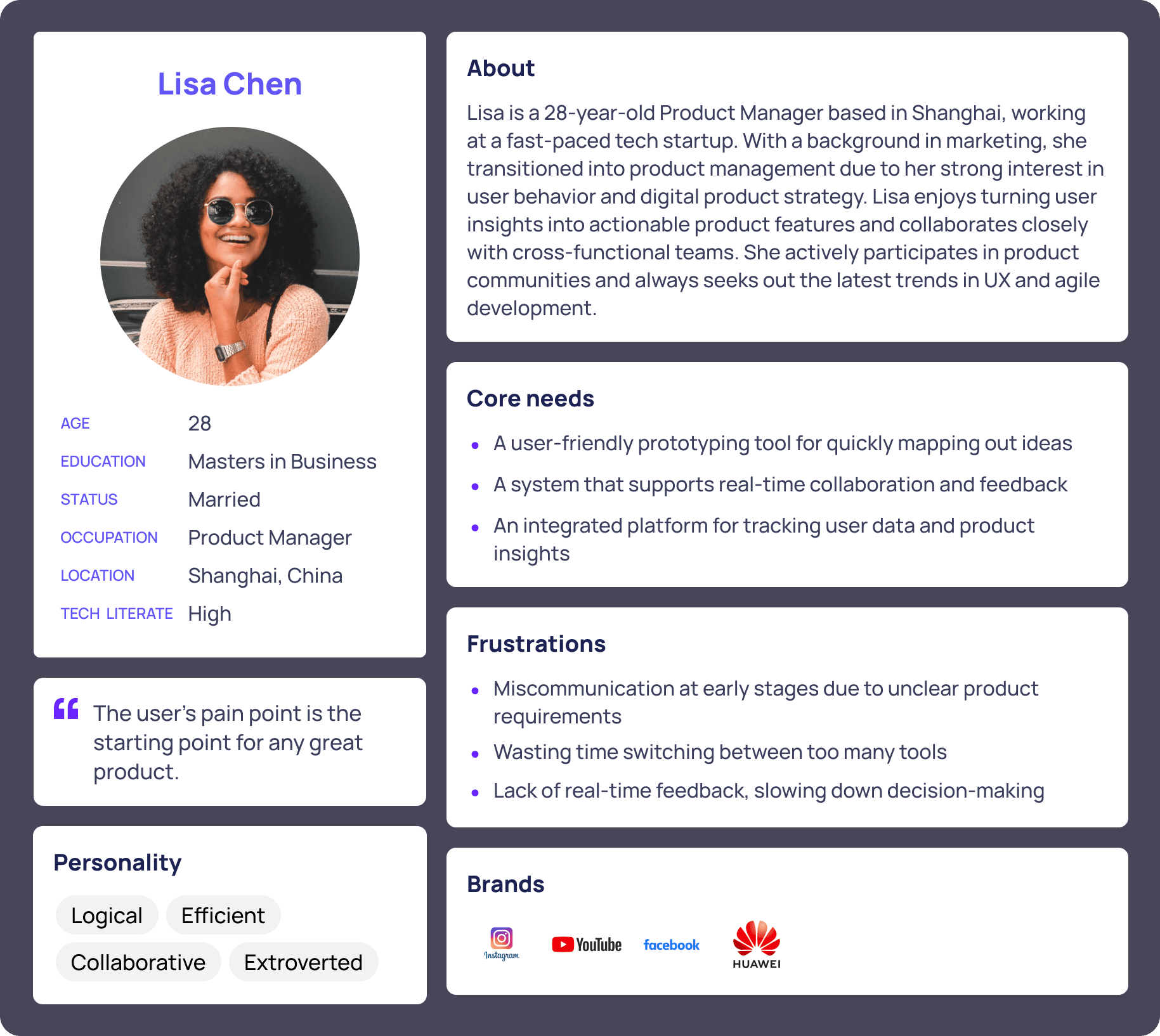
This example of "Project Manager Lisa Chen" demonstrates the tangible value of a user persona template. By humanizing your target audience with specific details, you gain a much clearer understanding of their needs and can tailor your content and solutions accordingly.
Free Download: User Persona Template
You can download the User Persona Template mentioned above by clicking Use Template button on this page. Customize it to fit your specific needs and preferences.
